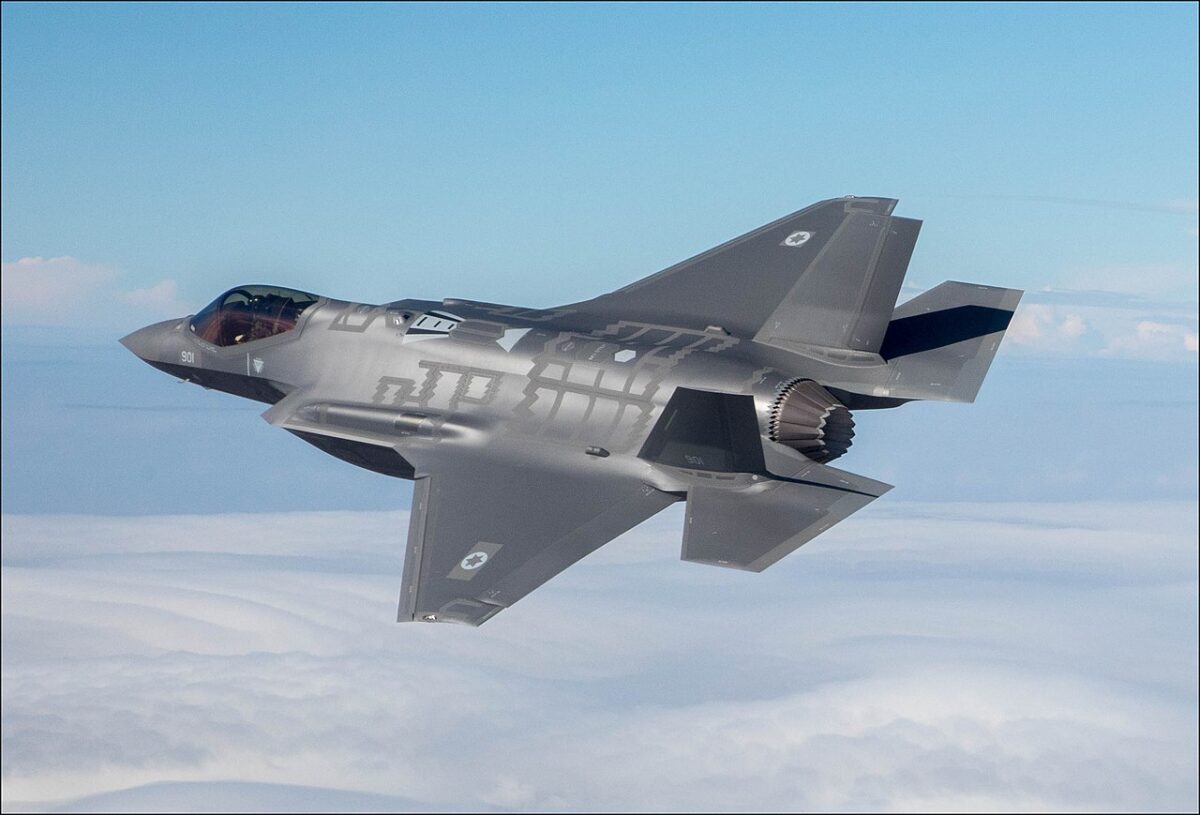As Prime Minister Benjamin Netanyahu exulted in the news that the United Arab Emirates would normalize relations with Israel, the third Arab country to do so, the Israeli daily newspaper Yediot Ahronot reported that the United States intends to sell the highly regarded F-35 stealth fighter jet to that Gulf nation.
It suggested that the sale of the F-35, one of the most sophisticated aircraft in the U.S. arsenal, was an integral part of the normalization agreement, and that Israel’s government had not voiced an objection to it.
These disclosures injected a sour note into Israel’s historic deal with the UAE, which has sought to buy the F-35, and prompted the United States to ensure Israel that its military superiority would not be compromised by such a sale.
According to a report in The New York Times on September 3, Netanyahu privately agreed to the proposed arms sale, which could face resistance in the U.S. Congress.
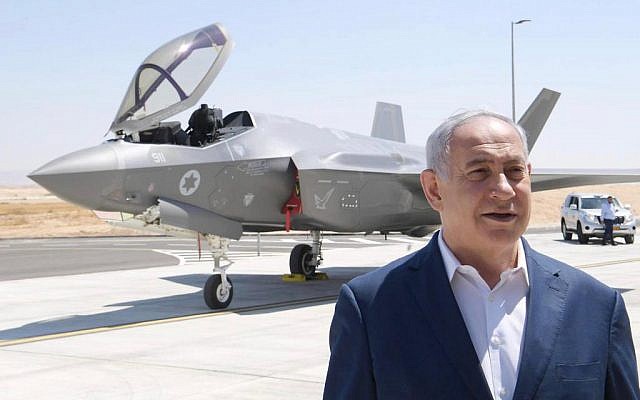
In response to the story, Netanyahu’s office countered, “Repeating a false allegation against Prime Minister Netanyahu does not make it true. At no point in the talks with the United States leading to the historic breakthrough with the United Arab Emirates did the prime minister give Israel’s consent to the sale of advanced weapons to the Emirates.”
Last week, Netanyahu said, “The peace agreement with the UAE does not include any reference to arms sales, and the U.S. has made it clear that it will always take strict care to maintain Israel’s qualitative edge.”
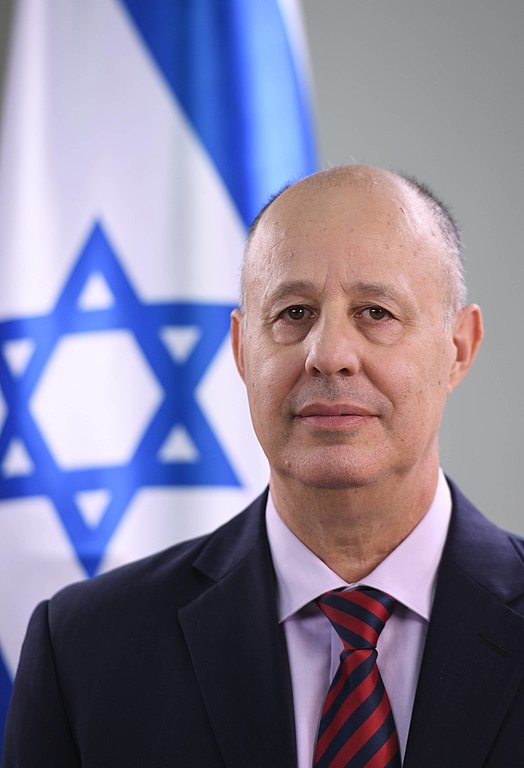
Netanyahu’s longtime ally and Minister of Settlement Affairs, Tzachi Hanegbi, put it more directly. “We oppose the sale of even one screw of one plane of the stealth fighters to any country in the Middle East, whether we have peace with them or not,” he said.
Benny Gantz, Netanyahu’s partner in the coalition government and the minister of defence, expressed opposition as well. “The F-35 is the most advanced plane in the world,” he said. “It’s not good for Israel to have it going around in other places.”
Israel fears that the F-35s state-of-the-art technology could wind up in the hands of an enemy should it be sold to an Arab nation.
Israel’s position annoys the UAE. It recently cancelled a trilateral meeting with Israel and the United States in New York City to mark the August 13 normalization agreement.
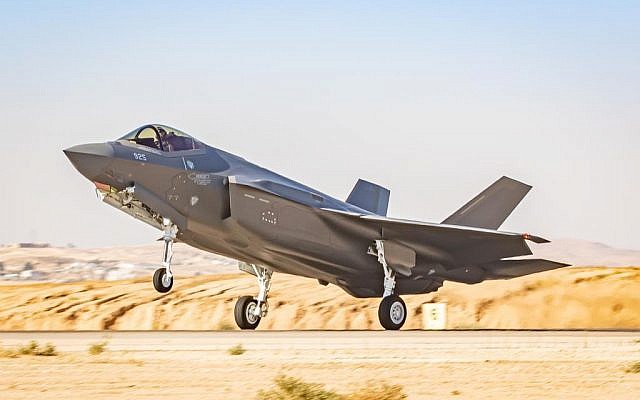
The F-35, which cost about $100 million apiece, is a formidable aircraft. Capable of engaging in air-to-air dogfights and striking ground targets, it has been sold to countries ranging from Australia and Canada to South Korea and Poland.
Turkey, a Muslim state, bought 100 F-35s and has taken delivery of ten, but due to a sharp disagreement over Turkey’s purchase of an advanced Russian anti-aircraft system, the United States has suspended the deal.
Israel bought 50 F-35s, and six are being delivered per year. The Israeli Air Force, which has assembled two F-35 squadrons, was the first country in the world to deploy the F-35 in combat. Israel used them to attack Iranian bases in Syria last year.
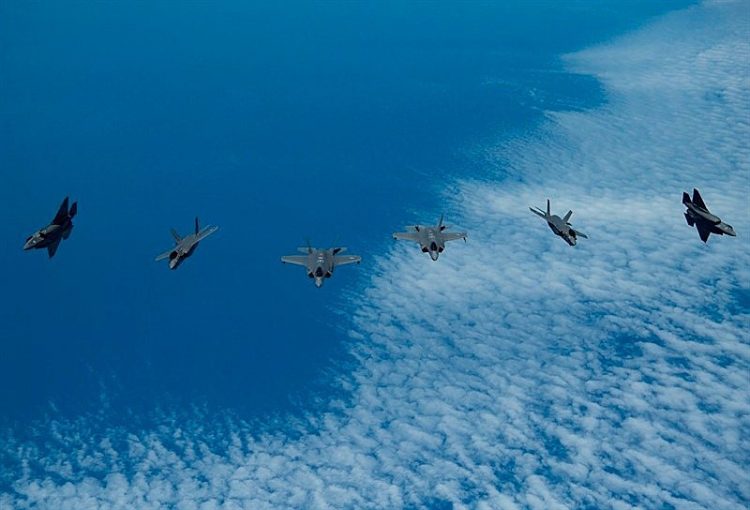
By all accounts, Jared Kushner, President Donald Trump’s senior advisor and son-in-law who has played a key role in bringing Israel and Arab Gulf countries closer together, favors selling the F-35 to the UAE, an important U.S. security partner.
He said the Trump administration is reviewing the matter.
“The military relationship America has with the UAE is very special, just like the relationship between Israel and America,” Kushner said, adding that the United States can maintain Israel’s military edge while still selling arms to an Arab ally.
He claims the UAE requires the F-35 due to its close proximity to Iran, Israel’s arch foe, and because the Islamic State organization, one of the UAE’s foes, needs to be finished off once and for all.
The U.S. ambassador to Israel, David Friedman, has said that if the UAE’s ties with Israel and the United States deepen in the future, its acquisition of F-35s could be strategically beneficial. “Ultimately, under the right circumstances, both the U.S. and Israel would benefit greatly from having a strong ally situated across the Strait of Hormuz from Iran,” he noted.
Friedman said the United States is committed to ensuring that Israel’s regional military supremacy, or “qualitative military edge,” remains intact. Washington has hewed to this policy since the 1973 Yom Kippur War. The U.S. has thus refrained from selling the F-35 to any Arab state.

Trump’s national security advisor, Robert O’Brien, told Netanyahu that “the U.S. is absolutely committed to preserving Israel’s military edge. We’ve done this for years, we’ll for sure continue to do this now.”
U.S. Secretary of State Mike Pompeo conveyed the same assurance to Netanyahu.
As he said, “The United States has a legal requirement with respect to the qualitative military edge, and we will continue to honor that. We have a 20-plus year security relationship with the UAE as well … and we will now continue to review that process. We are deeply committed to doing that, and will do it in a way that preserves our commitment to Israel as well.”
Israel’s minister of energy, Yuval Steinitz, believes that if the United States decides to sell the F-35 to the UAE, it would provide technology to Israel to limit potential damage.
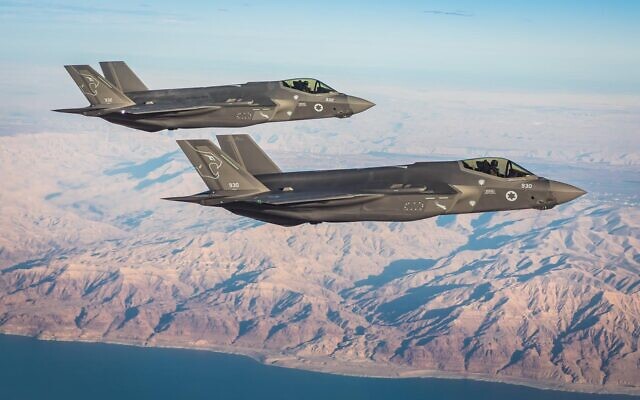
The United States, the world’s preeminent exporter of weapons, has sold more than $7 billion worth of military equipment to the UAE since 2008.
This past May, the U.S. Defence Security Cooperation Agency announced that upwards of 4,500 surplus American- manufactured Mine-Resistant Ambush Protected vehicles will be sold to the UAE for about $556 million.
In recent years, the United States has sold billions of dollars worth of weaponry to the UAE’s neighbors. Saudi Arabia has spent $14 billion, followed by Iraq ($4 billion), Egypt ($2.9 billion), Qatar ($2.7 billion), Kuwait ($1.3 billion) and Oman ($842 million).
Total U.S. arms sales in 2019 amounted to $55 billion.
